The Association for the Advancement of Baltic Studies hosted an online roundtable discussion on “Decolonizing Effects of the War in Ukraine: Baltic and Ukrainian Perspectives” on Wednesday, October 4, 2023, from 12:00-1:00 pm EST.
The webinar addressed the full-scale war in Ukraine as a potential move toward decolonization. Decolonization refers to resisting Russia and asserting new identities and subjectivities. Which processes of decolonization are taking place in Ukraine and the Baltic states? What will be the impact of this war on challenging imperial hierarchies in international relations? What will be its impact on domestic developments?
These and other questions were tackled by Nadiia Koval (Ukrainian Institute), Andrii Bahinskyi (Igor Sikorsky Kyiv Polytechnic Institute), and Maria Mälksoo (University of Copenhagen). The webinar was moderated by Tomass Pildegovičs (University of Cambridge) and welcome remarks were delivered by AABS Director-at-Large Daunis Auers (University of Latvia).
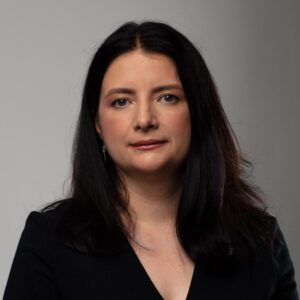
Nadiia Koval
Ukrainian Institute
Nadiia Koval is a foreign and security policy analyst, currently heading the department of Research, Analytics, and Academic Programmes at the Ukrainian Institute, the key cultural diplomacy institution of Ukraine. She is also a lecturer in European integration in Kyiv School of Economics. Previously she occupied different positions in Foreign Policy Council Ukrainian Prism, Diplomatic Academy of Ukraine, National Institute for Strategic Studies and the Ukrainian Institute for the Future. In the recent years her research has focused on the knowledge and the perception of Ukraine and Ukrainian culture abroad, including current state of Ukrainian and Eastern European studies worldwide; the discourses and interpretations of the causes and consequences of the Russian-Ukrainian war in the intellectual circles of the different Western countries; the political usage of culture by Russian state institutions.
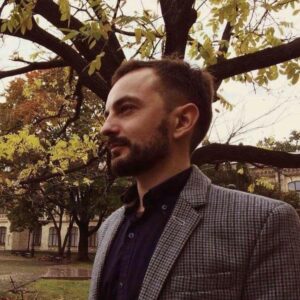
Andrii Bahinskyi
Igor Sikorsky Kyiv Polytechnic Institute
Andrii Bahinskyi is Associate professor of sociology at Igor Sikorsky Kyiv Polytechnic Institute. In 2008, he graduated from Taras Shevchenko Kyiv National University with a degree in political science. In 2011, Dr. Bahinskyi defended his PhD thesis “Political symbolism as a means of democratic consolidation of society” and received the degree of Doctor of Philosophy. Since 2014, he has been working at the Department of Sociology of Igor Sikorskyi of KPI at the Faculty of Sociology and Law. Since 2017, he is one of the developers and a lecturer of the educational program on Conflict Resolution and Mediation, which trains specialists in conflict resolution in the socio-political sphere. In his research, Dr. Bahinskyi is advancing a thesis that the post-war reconstruction of Ukraine is largely dependent on overcoming the consequences and traumas of the totalitarian/imperial past. Getting rid of these legacies will lead to establishing European practices of democracy and peaceful development.
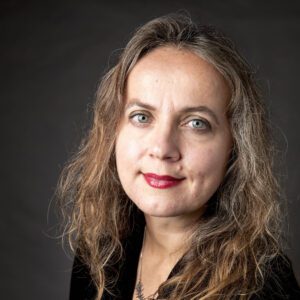
Maria Mälksoo
University of Copenhagen
Maria Mälksoo is Professor of International Relations at the Department of Political Science, University of Copenhagen. She is the Principal Investigator of the European Research Council’s Consolidator Grant RITUAL DETERRENCE (2022-2027) and leads the Baltic chapter of the collaborative MEMOCRACY project, funded by the Volkswagen Foundation (2021-2024). Besides her articles and chapters on memory politics, critical security studies and International Relations theory, she is the author of The Politics of Becoming European: A Study of Polish and Baltic Post-Cold War Security Imaginaries (Routledge, 2010); a co-author of Remembering Katyn (Polity, 2012); the editor of the Journal of International Relations and Development Special Issue “Uses of ‘the East’ in International Studies: provincializing IR from Central and Eastern Europe” (2021) and of the Handbook on the Politics of Memory (Edward Elgar, 2023).
Moderator:
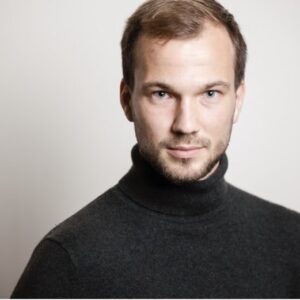
Tomass Pildegovičs
University of Cambridge
Tomass Pildegovičs serves as a Senior Expert at the NATO Strategic Communications Centre of Excellence. He has also been named a NATO 2030 Global Fellow. In his previous role, he served as a Policy Advisor in the European Parliament, advising on issues related to foreign interference in democratic processes, hybrid threats, and EU-Russia relations. Pildegovičs was selected as the 2022 Recipient of the European Union Studies Association Haas Fund Fellowship, as well as a 2021 GLOBSEC Young Leader in Security and Defence. He is currently a PhD candidate at the University of Cambridge, where he also completed his MPhil in Politics and International Relations with Distinction in 2019. He also holds a BA in International Relations with First Class Honours (2018) from the Department of War Studies, King’s College London.
Opening Remarks:
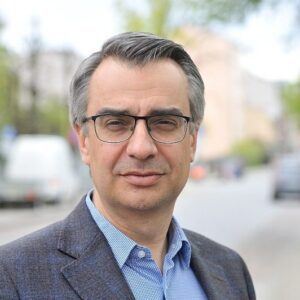
Daunis Auers
University of Latvia
Daunis Auers is Professor of European Studies and Jean Monnet Chair at the University of Latvia, and serves as Director-at-large of the Association for the Advancement of Baltic Studies (AABS). He studied at the London School of Economics and defended his PhD at University College London. He has been a Fulbright Scholar at the University of California-Berkeley (2005-2006) and a Baltic-American Freedom Foundation Scholar at Wayne State University in Detroit (2014) and published widely on political parties, elections, referendums, populism and the radical right and economic competitiveness in the Baltic states. His book on The Comparative Government and Politics of the Baltic States: Estonia, Latvia and Lithuania in the 21st Century – was published by Palgrave Macmillan in 2015. He is currently working on a monograph analyzing Nordic-Baltic integration and is a Fulbright program Visiting Professor at the University of Washington in Seattle during the fall and winter of 2023/2024.
Dr. Auers currently serves as the Director-at-Large of AABS.
